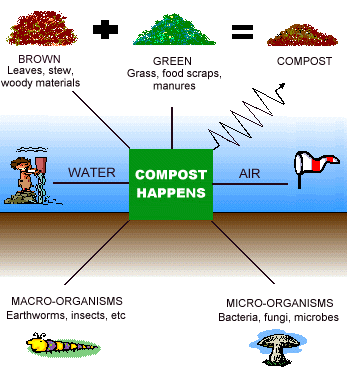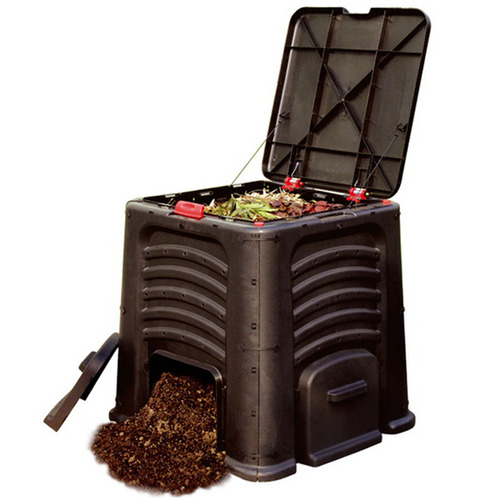Cow manure, nutritious soil, sunlight and water. That and some patience is all you need to have the garden of your dreams. Unfortunately, I pretty much suck at being patient.
So the idea that I have to "make" nutrient dense dirt for an entire year before I get to use any of it, is not encouraging. It is, however, comforting to know that scraps from your kitchen and yard can turn your home garden from sad looking vegetation to a delicious harvest to share with family and friends.
My family and I started our first garden last year, very later in the season. By the time we got our raised beds down and a fence built it was August.
Because we
Where I live, in the North East, the soil can be very rich in some places, while other areas are clay-like or have an over saturation of water. In my own "Granolaville" there are acres of local farms producing the freshest organic fruits and vegetables. The key to their success...using organic compost.
As beginners my hubby and I headed down to the local Lowe's to get bags AND bags of organic potting mix and compost. But you can just as easily make your own compost at home which is not only great for your plants but the environment as well.
Composting involves mixing yard and household organic waste in a pile or bin and providing conditions that encourage decomposition. The decomposition process is fueled by millions of microscopic organisms (bacteria, fungi) that take up residence inside your compost pile, continuously devouring and recycling it to produce a rich organic fertilizer and valuable soil.
Here's what you need to know to create your own "gold dirt":
1. Pick a Location
Your compost pile should be in a place that has direct sunlight and access to water, but is far enough from your home to avoid the smell of decaying food.
2. Find a Container
Whether you are starting off small or large, having a place to store your compost material is key. For indoor collections I suggest an old coffee can or any small container with a lid. You can place a filter between the lid and the can to prevent odors from escaping.
It's really important to have enough room to move your compost material around to speed up the decomposition process. For your outdoor pile you can cut the bottom of an old garbage can (so it is in contact with the ground and worms, who will work to aerate the soil ), purchase a turning compost bin, or one with sliding doors like the one we got from Lowes.
3. Layer it.
Start with small twigs or branches. Efficient decomposition requires nitrogen (kitchen scraps or anything green, like fresh cut grass), carbon (yard waste, dried leaves, anything brown), oxygen (air), and water. The perfect ratio of carbon to nitrogen is 3/1.
4. Water.
Your compost should be moistened but not saturated to the point where microbes that breakdown your waste can't survive.
5. Aerate
Turn your soil every couple of days to allow oxygen to get through the entire pile which promotes decomposition. Adding earthworms also helps.
6. Put a Lid on it
In order to lock in moisture and prevent animals from getting in, a sturdy lid is recommended.
7. Ready to Use
Composting is complete when all the soil is a dark rich earthy color. This process can take anywhere from a few months to a year depending on how big your pile is.
List of Items to Compost
- Fruits and Vegetable scraps
- Coffee grounds and tea leaves
- Cow manure (DO NOT USE OTHER PET FECES, IT WILL BECOME TOXIC)
- Rinsed eggs shells
- Shredded newspaper
- Sawdust
- Any kind of seed or pit chopped up to prevent growth
- Old breakfast cereal or stale bread
- Leftover cooked pasta
- Dryer lint
- Non Styrofoam egg cartons
- Paper napkins, towels or plates (without plastic coating)
- Anything you sweep up from your kitchen floor
Do not compost meat, bones, fat, grease, dairy products, or pet waste.
Good luck, and happy composting!!!
Getting dirty in Granolaville,
Resources:
http://www.lowes.com/cd_How+to+Compost_1280854673_
http://healthychild.org/blog/comments/10_quick_steps_to_composting/
http://www.growandmake.com/sustainable-living-blog/get-started-composting
http://www.care2.com/greenliving/80-items-you-can-compost.html?page=3



















0 comments:
Post a Comment
Leave us some crunchy goodness...